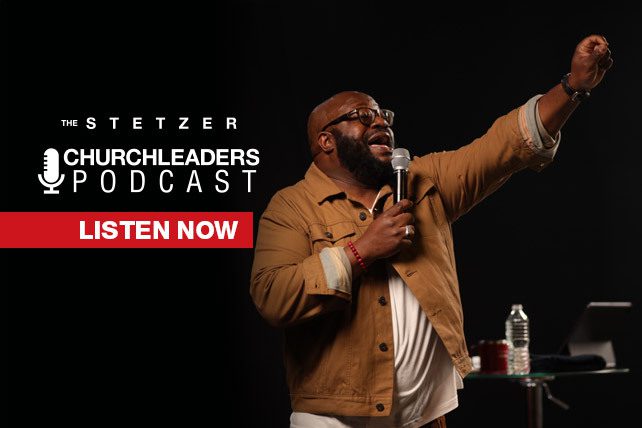“Be aware…American history is told to all of us from a very patriotic standpoint…As a matter of fact, what’s beautiful about the Bible is the Bible tells truth about history.”
“I believe that’s why people can deny racism because of the way we’re educated…Nobody’s calling every white person racist. You know, the issue with racism is we’re talking about, it’s a system. It’s not to condemn you. It’s about the system that’s set up. And if you believe in sin, you should believe in systemic something.”
“I know a pastor in a certain part of the country…he in a godly way, began to communicate to his upper class, white church some of the challenges of racism in this country. His church was 800. It went from 800 to 250 people in a week, and then they had to sell their building and then move into a school. And so, there’s a cost to it for some.”
“If you’re going to speak into this issue, you’ve got to count the cost and lovingly communicate to your congregation where they are and help shepherd them through it.”
“It’s not enough to be aware, you know, it’s not enough to acknowledge, it’s not enough to just say something about it. It’s also being active.”
“God doesn’t deny nationality and ethnicity. He affirms it and wants to redeem it for his glory.”
“All nationalism isn’t bad. I think that there is nationalism that’s bad in the sense of where it wants to subjugate other people…There’s a difference between Black nationalism and Black radicalism.”
“When you go to the Nation of Islam…their doctrine is surrounded fundamentally by saying the white man is the devil.”
“[Regarding the word, ‘woke,’] the word that we’ve used for years in the Black community is ‘conscious,’ and really ‘conscious’ just means just awareness of the issues that surround Black people in the country and not being duped by any type of injustice.”
“The far-left will co-op the terminology of the Black community. And what they’ll do is when they co-opt and use it for their issue, the first time that the far-right hears about it is not in the etymological foundation that it came from…but they hear about it from the far-left.”
“When it’s a far-left person, we say, ‘Man, they too woke for their own good,’ right? But then we’ll be like, ‘Man, are you going to be woke or what?’…And so for us, there’s so much nuance and dexterity with language.”

